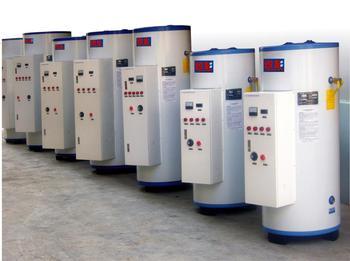 Polyurethane rigid foam has become a key insulating material in various applications due to its excellent thermal insulation properties and ease of molding. However, as a reaction-molded polymer, it is prone to mold shrinkage—where the final volume of the foam is smaller than the cavity it was filled into. This shrinkage can lead to issues such as separation between the foam and the outer shell, which negatively impacts both the aesthetics and the thermal performance of the product. In severe cases, it may even reduce the product's lifespan.
To address this issue, many manufacturers have traditionally increased the density of the polyurethane foam during filling. While this method helps minimize shrinkage, it also raises production costs and makes it more difficult to mold complex shapes, especially for thin shells or intricate nozzles. In solar water heaters, high-density foaming has led to problems like shell extrusion, liner deformation, and significant process defects—particularly around the collector nozzles.
Through extensive research and analysis, it has become clear that reducing the shrinkage rate without increasing the foam’s density is essential for improving the performance of solar water heater insulation. To achieve this, researchers have focused on optimizing formulations and material selection. By developing a specialized combination of materials, some solar water heater production lines have already seen promising results. The improvements include reduced peeling between the foam and shell, significantly lower chances of inner shell deformation, and overall safer and more reliable products. These advancements not only enhance product quality but also offer cost-effective solutions for manufacturers.
Polyurethane rigid foam has become a key insulating material in various applications due to its excellent thermal insulation properties and ease of molding. However, as a reaction-molded polymer, it is prone to mold shrinkage—where the final volume of the foam is smaller than the cavity it was filled into. This shrinkage can lead to issues such as separation between the foam and the outer shell, which negatively impacts both the aesthetics and the thermal performance of the product. In severe cases, it may even reduce the product's lifespan.
To address this issue, many manufacturers have traditionally increased the density of the polyurethane foam during filling. While this method helps minimize shrinkage, it also raises production costs and makes it more difficult to mold complex shapes, especially for thin shells or intricate nozzles. In solar water heaters, high-density foaming has led to problems like shell extrusion, liner deformation, and significant process defects—particularly around the collector nozzles.
Through extensive research and analysis, it has become clear that reducing the shrinkage rate without increasing the foam’s density is essential for improving the performance of solar water heater insulation. To achieve this, researchers have focused on optimizing formulations and material selection. By developing a specialized combination of materials, some solar water heater production lines have already seen promising results. The improvements include reduced peeling between the foam and shell, significantly lower chances of inner shell deformation, and overall safer and more reliable products. These advancements not only enhance product quality but also offer cost-effective solutions for manufacturers.Spc Flooring,Pvc Plank Spc Floor,Waterproof Spc Flooring,Luxury Waterproof Spc Vinyl Flooring
Changzhou Yingda New Material Co., Ltd , https://www.yingdaspc.com
![<?echo $_SERVER['SERVER_NAME'];?>](/template/twentyseventeen/skin/images/header.jpg)